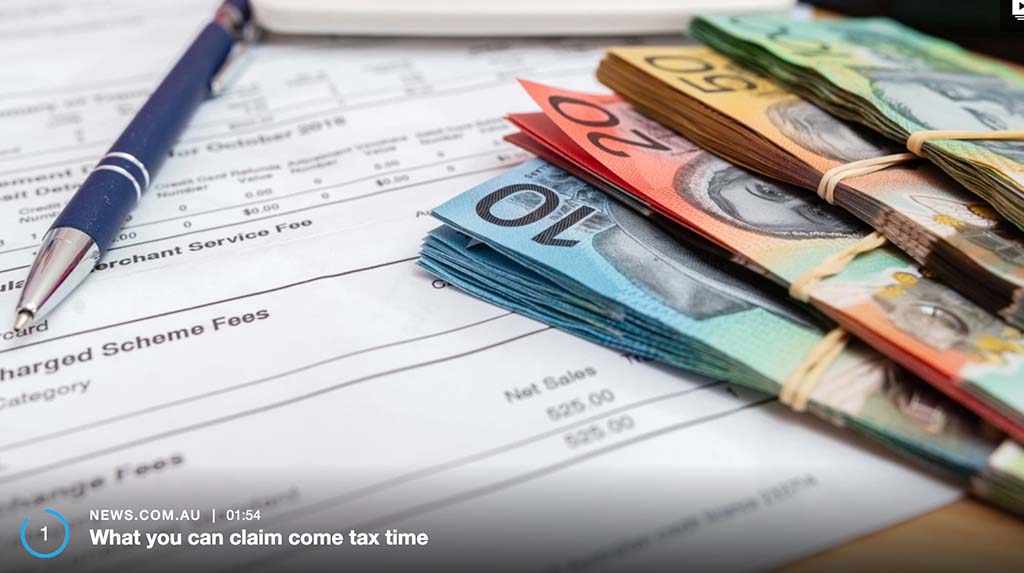
With tax time upon us, for those Aussies who haven’t lodged their tax returns for previous years, it’s a good time to catch up – or face the penalty.
Australians face a fine of up to $1,110 for not lodging their tax return, and if prosecuted by the Australian Taxation Office they risk copping a $9000 penalty or 12 months in prison.
Anyone earning more than the tax-free threshold, which currently stands at $18,200, is required to lodge a tax return.
By far, most people do the right thing. But the best advice for taxpayers with outstanding returns is to get up to date as soon as possible, said ATO assistant commissioner Tim Loh, and there’s a good reason to do it too.
“We know that four out of five Australians generally receive a refund, so if you haven’t lodged you may be missing out on money you could have back in your pocket,” he told news.com.au.
“We recognise that sometimes people don’t meet their lodgement obligations on time, even with the best intentions, and we encourage any taxpayers worried they can’t lodge on time, or [who] have already missed the due date, to get in contact with us as soon as possible to discuss their options.”
What happens if you don’t file
H&R Block’s director of tax communications Mark Chapman said for people who fail to lodge a tax return on time, first up the ATO will impose a Failure To Lodge (FTL) penalty on you, which ranges between $222 and $1,110.
“The penalty is normally applied automatically but is not normally applied to returns that either have a nil result or generate a refund,” he said.
“Where a penalty is applied, the ATO will sometimes remit it where it is fair and reasonable to do so, for example in the event of natural disaster or serious illness.”
But he warned that where a taxpayer continues to fail to lodge a return, particularly for several years, the ATO can issue the taxpayer with one or more default assessments.
“This is basically an estimated assessment of the taxpayer’s income, based on data held by the ATO about the taxpayer or similar taxpayers,” he said.
“Because these assessments are estimated, they are rarely entirely correct and often show a higher tax liability than the taxpayer actually owes since they often don’t take into account items like deductions.’
Taxpayers can appeal against a default assessment but they must be able to show what their actual tax liability was, he added, and that simply arguing that the ATO’s figures are not correct is not enough.
It is widely believed that taxpayers who lodge late are at increased risk of being reviewed or audited by the ATO, Mr Chapman said.
What to do to get on top of your tax
People can lodge returns through their myGov account as far back as the 2013-14 income tax year and the ATO will prefill any information that is available for you, said Mr Loh.
“If you have outstanding lodgements prior to 2013-14, we can also check if we hold any information to assist you in lodgements,” he said.
“You may have outstanding returns for years which you were not required to lodge and in this case you can submit a ‘non-lodgement advice’ through ATO online services.”
Penalties for non-lodgement can range depending on history and severity, he said, but there is the option to create and manage payment plans if you have any tax owing.
If you’re behind with one or more tax returns, the ATO will catch up with you and will take action, Mr Chapman warned.
“You should pre-empt that by getting your tax returns up to date. Your tax agent can make the process of catching up as painless as possible. Where there is a possibility that penalties can be remitted, they will make a case for you to the ATO,” he said.
“If you have missing income information, they will often be able to fill in the gaps by obtaining pre-filled information sent to the ATO by third parties such as banks and employers. Where you haven’t kept records of deductions, they will work with you to establish what you can claim.”
source: news.com.au
